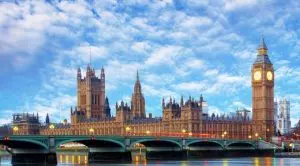 Gambling operators are set to face tougher regulations and heavier fines as the United Kingdom Gambling Commission has issued a new three-year strategy that aims at reducing gambling-related harm. The regulator has also urged operators to comply with the existing rules after a report revealed multiple violations of the consumer protection guidelines.
Gambling operators are set to face tougher regulations and heavier fines as the United Kingdom Gambling Commission has issued a new three-year strategy that aims at reducing gambling-related harm. The regulator has also urged operators to comply with the existing rules after a report revealed multiple violations of the consumer protection guidelines.
Last week, the Gambling Commission announced it would be taking stronger measures to combat problem gambling. In its three-year National Strategy to Reduce Gambling Harms, launched April 25, it states it would be taking a “public health approach” and working in partnership with operators, researchers, and health authorities to ensure a lasting impact on reducing gambling harm. Gambling companies would be required to be more transparent and honest on the dangers of gambling, including its link to depression and mental health issues, debt, loss of employment, suicide, and crime.
Increased financial penalties will be introduced for licensees who do not take sufficient action to mitigate against harmful effects of gambling. Certain practices, that have been known to cause harm, will be restricted and prevented through regulatory changes, whereas practices that have been identified as effective for reducing the risks of gambling, would have to be adopted by operators. Of course, the Gambling Commission is also focusing on more research to identify risk groups, good practices, as well as the lasting impact of gambling on peoples’ health and wellbeing.
As part of the new approach, Public Health England will conduct a nation-wide review of the harm caused by gambling. It will assess the range and scale of problem gambling and its impact not only on individuals but also on their families and the public. PHE’s report will also include a review by the National Institute for Health Research on the effectiveness of existing policies and measures.
The Gambling Commission is expected to introduce a compulsory age-verification, as well as a ban on gambling and betting with credit cards. The regulator also proposed a mandatory levy for everyone who participates in gambling activities in the country but the government did not approve the move, which, according to estimates, could bring £58 million more in funding. The sports ministry is now facing strong criticism over its decision to ignore the UKGC’s recommendations at a time when gambling addiction rates are rising in the country.
Last week, GVC Holdings Chief Executive Officer Kenny Alexander expressed his support for a blanket ban on gambling adverts during televised sports. Starting next season, such ads will not be aired during football matches. According to Alexander, however, the ban should apply for all sports except for horse races.
Gambling Operators Urged to Comply with Consumer Protection Guidelines
 On Monday, a joint letter by the UKGC and the Competition and Markets Authority (CMA) was sent to licensed gambling operators, urging them to comply with the current rules for consumer protection.
On Monday, a joint letter by the UKGC and the Competition and Markets Authority (CMA) was sent to licensed gambling operators, urging them to comply with the current rules for consumer protection.
The letter comes as a response to a recent report that found out multiple violations to the consumer protection guidelines. The remote gambling sector, in particular, has been responsible for breaches of the existing consumer protection law.
The study, a joint work by the CMA and the Commission, reveals that many online gambling operators publish unclear and misleading terms and conditions for their bonuses and promotions. The rules for claiming such bonuses often fail to clarify that there are serious requirements that eventually become obstacles that prevent customers from withdrawing their winnings.
Several firms have already agreed to cease certain unfair practices, including the false advertising of online bonuses and the complex withdrawal process – Ladbrokes, William Hill, PT Entertainment, BGO, Jumpman Gaming, and Progress Play.
- Author


